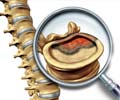Sleep paralysis is related to REM sleep, particularly to the cycle that occurs at sleep onset. It is a phenomenon that seems to happen to about half the population at least once. But sleep paralysis rarely persists or causes serious life damage.
Rapid eye movement sleep, or REM sleep, accounts for 20–25% of total sleep time in normal human adults. The criteria for REM sleep include rapid eye movements as well as a rapid low-voltage EEG.People who experience sleep paralysis find themselves awake in the dream world for anywhere from a few seconds to 10 minutes, often experiencing hallucinations with dark undertones. Cultures from everywhere from Newfoundland to the Caribbean to Japan have come up with spiritual explanations for the phenomenon.
Researchers Julia Santomauro and Christopher C. French of the Anomalistic Psychology Research Unit, Goldsmiths, at the University of London write in The Psychologist, “Shift work, jet lag, irregular sleep habits, overtiredness and sleep deprivation are all considered to be predisposing factors to sleep paralysis; this may be because such events disrupt the sleep–wake cycle, which can then cause [sleep-onset REM periods].”
In REM sleep, you’re unconscious, experiencing a variety of sensory experiences, and almost all of your muscles are paralyzed (that’s called atonia). .Narcolepsy, which can be linked with sleep paralysis, has a similar pathology.
Sleep paralysis was first identified within the scientific community by psychologist Weir Mitchell in 1876.
A study released earlier this year found that more than 90 percent of Mexican adolescents know the phrase “a dead body climbed on top of me” to describe the disorder. More than 25 percent of them had experienced it themselves, Alexis Madrigal wrote on the Wired.
Advertisement
Advertisement
GPL












